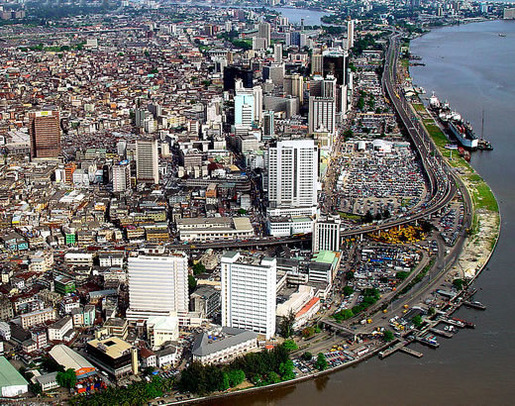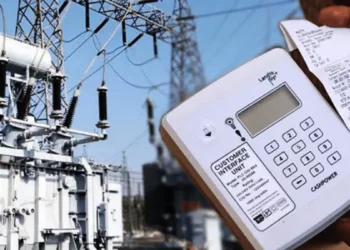Every October 13, the world marks the International Day for Disaster Risk Reduction (IDDRR), a day set aside by the United Nations to raise awareness about the importance of reducing the risks and impacts of disasters. For Nigeria, this year’s commemoration must go beyond symbolic speeches. It should serve as a sobering reminder that disaster risk is now an economic issue, one that threatens growth, livelihoods, and the fragile path to sustainable development.
From the recurring floods that devastate farmlands in Benue and Kogi, to windstorms that rip through northern communities, and coastal erosion eating away at Lagos and Bayelsa, Nigeria’s economy is bleeding quietly from unmitigated disasters. The World Bank estimates that the 2022 nationwide floods alone cost the country over $9 billion in damage and losses, crippling agricultural output, destroying infrastructure, and displacing over 2 million people. Such figures are not just humanitarian tragedies; they represent a massive drag on GDP, inflation, and fiscal stability.
Yet, despite repeated warnings, Nigeria continues to operate in a reactive mode, waiting for disasters to strike before scrambling for relief. The National Emergency Management Agency (NEMA) and state-level bodies are stretched thin, often underfunded, and more focused on response than risk prevention. This cycle of crisis and aid must be broken if Nigeria’s economy is to build real resilience.
Experts have long pointed to the economic logic of risk-informed development planning. Every naira spent on prevention saves multiple times that amount in post-disaster recovery. For a country with constrained revenues and rising debt, disaster preparedness is not a luxury, it is sound fiscal policy. Investing in early warning systems, resilient infrastructure, and climate-smart agriculture can reduce future losses while creating jobs and stimulating innovation.
Nigeria’s infrastructure deficit compounds its vulnerability. Poorly built roads, bridges, and drainage systems collapse under heavy rains, while informal settlements on floodplains expose millions to danger. The economic cost of rebuilding the same infrastructure after every disaster far exceeds the cost of enforcing urban planning laws and building resilience into design standards.
Beyond physical resilience, there is the issue of financial preparedness. The government needs to mainstream disaster risk financing into its economic management framework. Instruments such as catastrophe insurance, sovereign risk pools, and dedicated resilience funds can cushion fiscal shocks. The African Risk Capacity (ARC) mechanism, which Nigeria is a member of, remains underutilised. More proactive engagement could help the country access quick funds when disasters strike, reducing pressure on emergency budgets.
Private sector participation is equally crucial. Businesses lose billions each year to disruptions caused by floods, power outages, and infrastructure failure. Integrating disaster risk management into corporate planning, insurance coverage, and supply chain strategies would protect investments and jobs. Financial institutions should also embed climate and disaster risks into lending decisions, steering capital toward resilient sectors and green infrastructure.
On the human side, agriculture remains the most affected. As floods, droughts, and unpredictable weather worsen under climate change, smallholder farmers who produce the bulk of Nigeria’s food are losing livelihoods and deepening food insecurity. Expanding irrigation, promoting drought-resistant crops, and improving access to crop insurance should be central to the country’s food security strategy.
To its credit, the federal government has taken some steps, including the establishment of the National Emergency Flood Preparedness Plan and ongoing work on a National Adaptation Strategy. However, these efforts must be better funded, coordinated, and integrated into mainstream economic policy. Disaster risk reduction should not sit on the periphery of governance; it should be at the heart of national planning, from agriculture and housing to transport and finance.
This year’s IDDRR theme: “Fighting Inequality for a Resilient Future,” resonates deeply with Nigeria’s reality. Disasters disproportionately affect the poor, who often live in high-risk areas and lack the means to recover. Reducing disaster risk is, therefore, also about reducing inequality, ensuring that vulnerable communities are protected through inclusive planning, education, and access to credit.
Nigeria’s economic future depends not just on oil prices or macroeconomic reforms, but on how well it can withstand the shocks of a warming, volatile world. Disasters are becoming more frequent and severe, but their damage is not inevitable. With the right mix of foresight, coordination, and accountability, Nigeria can shift from crisis management to risk management, turning resilience into an engine of sustainable growth.
As the world marks the International Day for Disaster Risk Reduction, Nigeria must choose preparedness over panic, and resilience over relief. The next flood or drought should not find the country unready economically, institutionally, or morally.





